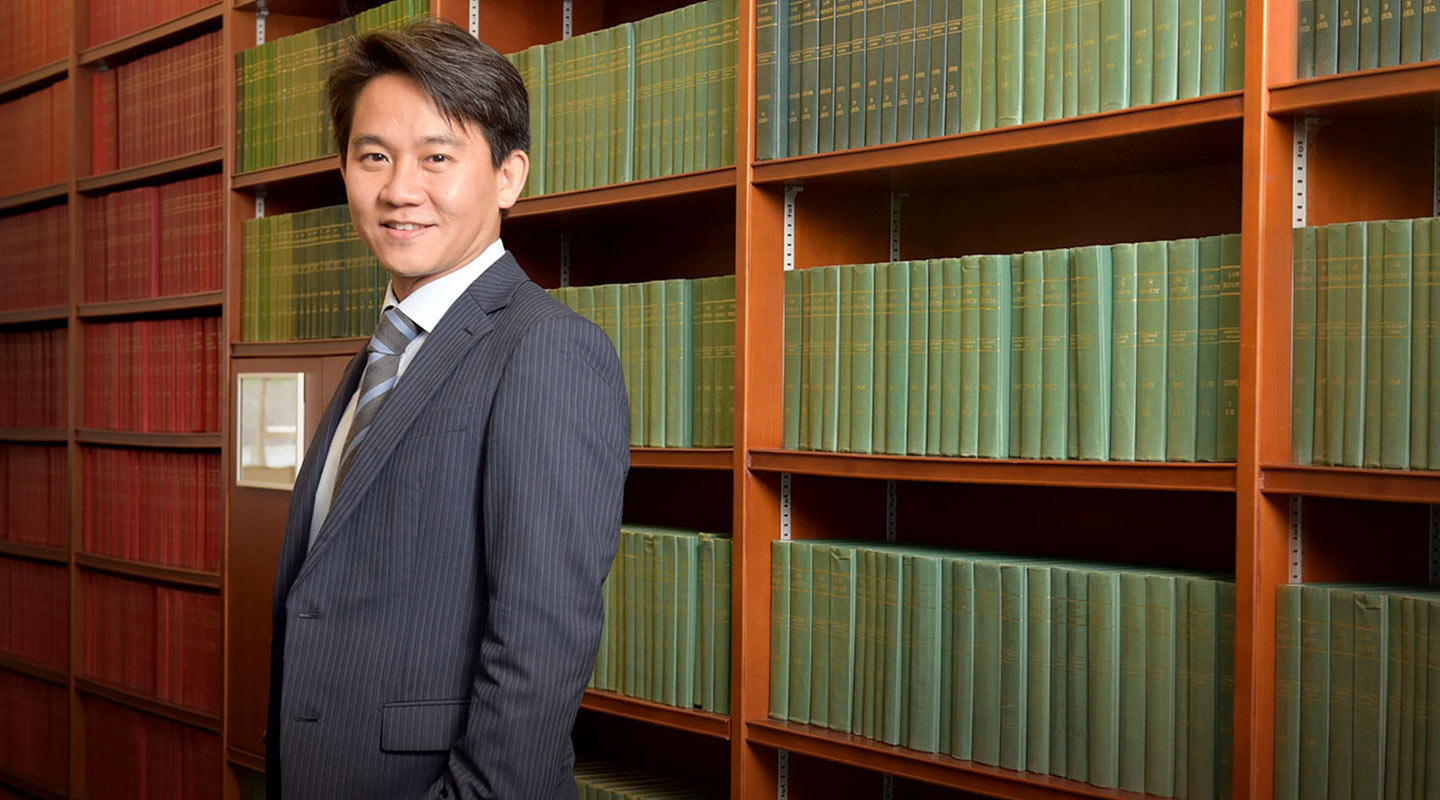The Legal Bricks in the Great Firewall of China
Jyh-An Lee on the leading edge of China’s Internet law

In the West, the term ‘cybersecurity’ inevitably raises the concept of a technical threat: the theft of data, abuse of personal information, or cyberwarfare.
For China, the main threat is an ideological one. For that reason, its way of policing and protecting its people is a very different approach from what the West would adopt, or accept.
Law professor Jyh-An Lee is studying that dichotomy. He’s on the front lines of legal scholarship on the shape-changing frontier of Chinese Internet law.
The 2017 Cybersecurity Law provides Chinese citizens with a lot of protections over their digital data and cyber-privacy. But they are commercial rights—they protect against the abuse of information by private companies.
The state remains virtually free to use data however it wants. The Cybersecurity Law creates numerous ways for the government to conduct surveillance, acquire confidential information from the private sector, or block market access.
To Professor Lee, this stems from a fundamental difference in philosophy between East and West. In the Western world, human rights have always served to protect individuals from state power. In China, human rights derive from the state, which then reigns supreme over the individual.
Likewise, free speech is well-protected in China—it just does not apply to political speech against the government. Whether or not you agree with the approach, he notes, it is the current operating environment in China.
‘A lot of people can’t understand that, but the fundamental human-rights philosophy is very different,’ Professor Lee says. ‘It’s a private right,’ a commercial one.
Professor Lee, who holds a post in CUHK’s Faculty of Law, has scoured hundreds of government statements and court decisions to come to his conclusions. He has to stay current; the way Chinese cyberspace functions, legally and practically, changes at warp speed.

A special provision in the new Cybersecurity Law requires all companies to store personal data on Chinese customers within China. Companies must also apply for special permission to transfer any of that data out of the country.
‘That troubles a lot of investors in China,’ Professor Lee says. Yet increasingly Western companies are overcoming objections to restrictions they would never accept at home. Apple was one of the first to comply with the requirements, having previously stored customer data at its California base.
China has other paradoxes. It has some of the world’s most stringent regulations and restrictions on cyberspace, as well as some of the nimblest and most innovative online business models.
Most legal scholars have argued that if you want a robust Internet economy, you need strong rule of law and light regulation of the technology.
‘China is posing a different example,’ Professor Lee notes. ‘It is imposing a lot of restrictions, and the industry is growing very fast.’
Then U.S. President Bill Clinton in 2000 quipped that China trying to crack down on the Internet was like ‘nailing Jell-O to a wall.’ Beijing has found the right hammer.
Clinton imagined that the Internet would change China, making it a more open society. But to date, China is instead changing the Internet to suit its style.
Scholars also believed the Internet had no borders. China has successfully built in barriers, walling itself off, and its citizens in. As a result, Chinese cyberspace is a zone unto itself, not completely connected to its global equivalent.
‘A lot of restrictive or novel Internet regulation is effective in this country,’ Professor Lee notes. ‘The restrictive Internet legislation is possible because of the very unique technological architecture,’ a point not appreciated in most scholarship.
China’s policies were originally purely proscriptive: ‘You can’t do this, and punishment will follow.’ But Beijing has become more sophisticated in its approach, albeit with the same goal. It uses the carrot of access to China’s market.
‘Now they are much smarter, they set incentives,’ Professor Lee explains. ‘If you want to make money, access the market, just follow this procedure. Otherwise I will kick you out.’
Still, Chinese citizens have adapted their behaviour. Aware of the restrictions, they use the Internet for commerce and for entertainment, but typically don’t spend much time on issues such as public policy debate. Many of their comments would be expunged by China’s ‘Internet army’ of watchdogs.

Internet law ‘is still enforced effectively, but sociologists always argue you will see the change happen gradually,’ Professor Lee says. ‘Already, Chinese people know more and more about the outside world.’
Professor Lee believes it’s possible that China will also export its restrictive policies. ‘There is already a spillover effect,’ Professor Lee says, pointing to an Indian court decision that cited Chinese law on human rights concerning free speech. ‘China will probably become a role model for a lot of developing countries in terms of internet regulation.’
Corporate pressures may also cause companies to deploy policies they developed for China in other places. It’s far cheaper to take a restrictive, compliant framework and apply it to other authoritarian nations than to adapt a liberal framework on a custom basis. So companies may opt to use their Chinese-style operating procedures and apply them to nations such as Myanmar, where the government also controls much speech.
China has also foisted a lot of liability onto private network providers that would not be sanctioned in the West. Chinese Internet service providers must do the tracking privately, and aren’t recompensed or rewarded for the extra cost.
‘If you ask them to provide very strong cybersecurity protection, it incurs a lot of business cost on their side,’ Professor Lee says. ‘In a free market they will complain, and insist that the government should share that cost.’
By Alex Frew McMillan
This article was originally published on CUHK Homepage in Jul 2018.

